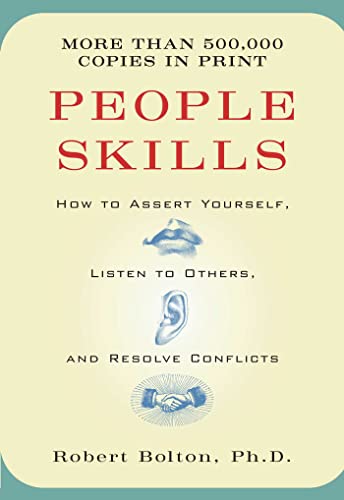Hiring a landscaper can feel like a dream come true—until something goes wrong. Maybe the project isn’t turning out as planned, deadlines are slipping, or unexpected costs are piling up. Disputes with landscapers can be frustrating, especially when your outdoor space isn’t shaping up the way you envisioned.

I’ve been there, and I know how overwhelming it can feel to address these issues without making things worse. The good news? Most conflicts can be resolved with clear communication and a bit of patience. Let’s explore some practical steps to help you navigate these tricky situations and get your landscaping project back on track.
Understanding Common Disputes With Landscapers
Disputes with landscapers often stem from disagreements over project details, quality, or costs. Identifying the common causes can help in addressing issues effectively.
Miscommunication and Expectations
Misaligned expectations frequently lead to disputes. If the agreed design plan and the completed work differ, frustration can develop on both sides. For example, landscaping elements like plant placement or patio dimensions might not match the original proposal. Clear communication about project scope, timelines, and materials can minimize these misunderstandings.
Quality of Work Issues
Disagreements often arise when the finished work appears subpar or not as promised. Examples include improper lawn grading, uneven pavers, or incorrect plant installations. Many of these problems result from inadequate skills or rushed jobs. Ensuring the landscaper’s qualifications and reviewing their portfolio beforehand helps reduce this risk.
Payment Disagreements
Payment disputes can disrupt projects when either side feels they’ve been treated unfairly. Contractors might bill for unapproved additional work, or clients might refuse payment for incomplete tasks. These issues often escalate if payment terms aren’t clearly documented in the contract. Clearly agreed payment schedules and itemized estimates are key to avoiding such conflicts.
Steps to Resolve Disputes With Landscapers
Resolving disputes with landscapers becomes easier when approached systematically and with calm communication. I focus on identifying key issues, understanding my agreements, and exploring solutions collaboratively.
Open Communication and Clarification
I start by discussing the issue directly with the landscaper. Clear communication works best when I explain my concerns concisely and back them up with specific examples, like deviations from agreed plans or deadlines. I listen to their perspective to identify misunderstandings or external factors affecting the issue. Remaining calm helps maintain a productive conversation.
Reviewing Contracts and Agreements
I review the signed contract to confirm what was agreed upon, including project details, timelines, and payment terms. Checking written agreements clarifies expectations, making it easier to identify any breaches. If the landscaper didn’t follow the agreed terms, having this documentation helps when negotiating corrections.
Seeking a Resolution Through Compromise
I propose solutions that accommodate both parties’ interests wherever possible. If the landscaper can’t fully meet the original terms due to limitations, I discuss alternative fixes, like adjusting project timelines or exploring partial refunds. Remaining flexible fosters cooperation while ensuring fairness.
Legal Options for Unresolved Disputes
When communication and compromise fail, legal measures may help resolve conflicts with landscapers. Exploring these options depends on the severity and nature of the dispute.
Mediation and Arbitration
Mediation involves working with a neutral third party who helps both sides find common ground. Trained mediators facilitate discussions to address specific concerns without taking sides. The process is often quicker and less expensive than litigation. If mediation works, both parties sign an agreement outlining the resolution.
Arbitration is more structured, with an arbitrator reviewing evidence and making a binding or non-binding decision. Binding arbitration results are final, while non-binding allows further legal action if the decision isn’t accepted. Consider arbitration if negotiations break down but litigation feels excessive.
Small Claims Court and Legal Action
Small claims courts handle disputes involving limited monetary amounts, typically ranging from $5,000 to $10,000 depending on the state. This option is suitable for addressing issues like incomplete work or overpayment. I ensure I gather records, including contracts, invoices, and photo evidence, to support my claim.
For larger disputes or breaches of contract, filing a lawsuit may be necessary. Legal counsel helps evaluate the case’s strength and guides me through the formal process. Though litigation is time-intensive and costly, it ensures enforceable outcomes when other methods fail.
Preventing Future Disputes
Avoiding disputes with landscapers begins with proactive steps during hiring and project management. Clear communication and collaboration are key to fostering a positive working relationship.
Writing Clear Contracts
Drafting a detailed contract ensures clarity for both parties. I include project scope, timelines, and payment terms in every agreement. For example, specifying materials, design plans, and completion milestones leaves no room for misinterpretation. I also outline procedures for handling changes or unforeseen issues, ensuring both sides agree upfront.
Regular Project Updates and Collaboration
Frequent updates reduce misunderstandings. I schedule regular check-ins to review progress and address potential concerns. Sharing updated photos or walkthrough summaries keeps communication open. If adjustments arise, such as weather delays or material shortages, discussing them early helps maintain trust and alignment.
Conducting Thorough Research Before Hiring
Researching landscapers builds confidence before hiring. I verify credentials, read reviews, and request portfolios from potential hires. For added assurance, I contact past clients to confirm quality and reliability. Careful vetting ensures the landscaper’s expertise matches the project’s requirements.
« Landscape Companies Near Me: Reviews, Top-Rated Services & Expert Hiring Tips Backyard Retreats: Oasis Ideas for Creating Your Perfect Outdoor Escape »
Conclusion
Disputes with landscapers can be stressful, but they don’t have to derail your project or your peace of mind. Taking a calm and proactive approach, backed by clear communication and documented agreements, can make a world of difference. Whether you’re resolving an issue or preventing one from happening, staying patient and solution-focused helps build trust and cooperation.
By investing time in research, setting clear expectations, and maintaining open dialogue, you can create a smoother experience for both you and your landscaper. A little preparation and collaboration go a long way in turning your vision into reality without unnecessary conflict.
















